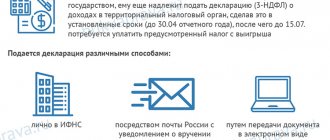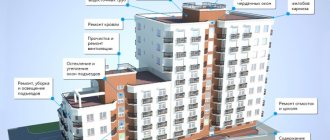Causes of debt and a typical portrait of a debtor
Most cases of debt to RSO by individuals are associated with financial troubles in Russian families. Many citizens are forced to live in debt. Some consumers choose to accumulate debts in a snowball fashion, regardless of the small amount overdue. But it is gradually becoming larger and accruing penalties.
The management and resource supplying organizations have the right to use measures of preliminary influence on the debtor. Their list includes the following actions:
- sending notifications about the need to repay the debt on time. The document contains information about the subscriber, as well as a detailed calculation of accumulated debts, taking into account penalties;
- direct communication with an unscrupulous subscriber: telephone calls, a call to the management organization or RSO to give an explanation. But such events can be ignored by homeowners;
- execution of a court order or statement of claim. The Code of Civil Procedure of the Russian Federation allows you to recover due payments and accumulated penalties without filing a lawsuit in court. If no objections are raised to the order, then the debts will be collected forcibly, with the participation of bailiffs.
Other common reasons for not paying debts are forgetfulness and simple reluctance. A third of housing and communal services defaulters are owners of comfortable real estate with a stable income. Non-payment is also motivated by moral and psychological factors, carelessness, and the desire to oppose oneself to the established order. The state and commercial structures are trying to combat this phenomenon. In the regions, data from bailiffs conducting raids on roads periodically appears. Well-maintained real estate and transport are seized, and the travel abroad of sufficiently financially secure debtors is restricted.
There are also no unambiguous age limits characterizing the portrait of a debtor at the federal level. But it is customary to highlight the criteria for violators of payment discipline. Usually this is a citizen over 30 years of age who does not have a permanent job. The average amount of debt is 25-40 thousand rubles. The average period of non-payment for housing and communal services is about six months.
Categories of debtors are divided depending on the amount of non-payment. These include:
- Citizens who have not paid their housing and communal services debts due to forced absence or illness. Such persons are considered defaulters who have short-term debt, usually not exceeding 10 thousand rubles. Non-payment period is up to three months.
- Citizens who do not pay for housing and communal services for three to 6 months. The amount of non-payment is from 10 to 100 thousand rubles.
- Willful defaulters who ignore the obligation to pay for housing and communal services for more than six months. The amount of non-payment usually exceeds 100 thousand rubles.
The law does not have clear criteria that divide debtors into categories. It is assumed that debts must be paid within a reasonable time - the 10th of each month that follows the billing period. As a percentage of the non-payment market, the worst defaulters make up about 10% of debtors. Most of the debt is of an average nature and amounts to 50-60% of the total housing and communal services market. 30-40% of non-payments occur among those with short-term debt.
The list of defaulters includes persons who occupy different social positions in society. At risk are families without children, citizens living alone, as well as landlords who believe that housing and communal services should be paid by the tenants of an apartment or private house. But this obligation is often not fulfilled by tenants, which causes the accumulation of debts.
The list of debtors by legal entities includes management organizations that have not received additional amounts received from apartment building residents. Large debts can also accumulate among budgetary institutions.
Advantages and disadvantages of direct contracts with resource supply organizations
Management organizations (30-40% of the total) often delay settlements with RSO. The collection rate for services from supplying organizations is on average 80%, which forces resource suppliers to work at a loss. A direct agreement between the owner of a residential property and the RSO will allow settlements with citizens directly, bypassing intermediaries in the form of management companies. Then management companies and homeowners associations will get rid of the obligation to collect debts from consumers.
Management organizations, by providing RSOs with the opportunity for direct mutual settlements with consumers, will be able to reduce income taxes and switch to a simplified taxation scheme. With a direct agreement, the possibility of bankruptcy of the management organization due to accumulated debts to the RSO is excluded. Even if a debt has arisen, the management organization will not be able to compensate for it using funds collected for major repairs or current costs. This will make it possible to demand recalculation directly from RSO for the poor quality of supplied resources.
The disadvantages of such agreements include the following features:
- the need to distinguish between payment documents of the management organization and the RSO;
- the need to restructure the management of the RSO - the organization will have to amend the charter, create a department for interaction with individuals, if such a division was not previously provided for within the legal entity;
- commercial burden on RSO - when citizens apply for recalculation of payments, they will need additional expenses to expand the accounting department and hire specialists to interact with clients. RSO will have to work with citizens' claims and conduct explanatory work for the population.;
- the need to work with overdue debts of citizens. “Double receipts” that confuse debtors should also be eliminated;
- difficulties with delimiting the area of responsibility between the management company and the RSO. There may be disputes over who is responsible for what resources and communications. Thus, residents’ complaints about low water pressure or insufficient heating can be “spread” between the RSO and the management company, which is still required to be responsible for managing the apartment building. If residents file a complaint due to low water pressure, the RSO will shift the blame to the management company, citing the low pressure as rotten pipes inside the house. In turn, companies can also refer to the resource provider's shabby communications.
Problems associated with paperwork among middle and lower-level employees of the RSO cannot be ruled out. In practice, RSOs are in no hurry to enter into contracts directly with consumer citizens, although such an opportunity is provided by the Decree of the Government of the Russian Federation No. 354 and Federal Law No. 59 of 04/03/2018. If there is a direct agreement, the supplying organization is also obliged to transmit readings of individual and communal meters to the RSO.
Responsibility of the chairman of the partnership
A homeowners' association is equated to a legal entity, therefore, the responsibility of the chairman of the HOA in the event of bankruptcy of the HOA is, first of all, to check by special bodies the activities of the organization for deliberate bankruptcy. If signs of such a violation of the law are detected, the chairman may be brought to administrative or criminal liability.
If no signs of deliberate bankruptcy are detected, the chairman will not be held liable - the debt will be repaid from the property of the partnership. At the same time, members of the HOA have the right to file a complaint against the chairman if his activities are seen as a violation of the law.
Organization of an overdue debt collection department at a resource supply organization
To competently and effectively collect overdue debts, it is advisable to use specialized software, for example, BIT.Debt Management. By increasing the efficiency of work with debtors, the collection of payments for housing and communal services increases and the total debt is reduced.
The software package will allow you to optimize management accounting by generating the necessary reporting, transparent monitoring of employee performance, and restricting access to information.
At the soft and hard collection stages, the system has the following capabilities:
— Employee’s desktop — Quick access to complete information on the debtor and the history of work with his debt obligation
— Task planner – Convenient planning of tasks for the day
— Autonomous Email and SMS distribution — Informing hundreds of debtors in 20 minutes
— IP telephony — calls directly from the program, storage and analysis of conversations with debtors
— Building a dialogue script — The ability to not get lost in a conversation and have a list of arguments before your eyes
Automation of enforcement and judicial proceedings occurs thanks to the functionality:
— Printable forms — create, send, print any documents in two clicks
— Integration with the FSSP service — Upload the status of enforcement proceedings in offline mode
— Integration with the Federal State Unitary Enterprise Russian Post service — Send correspondence en masse in two clicks
— Registration of incoming and outgoing correspondence
— Create a claim or order — Calculate the cost of the claim and the amount of state duty
BIT.Debt management is a software package designed to automate work with debtors and increase the efficiency of debt collection.
How is the bankruptcy procedure carried out?
Bankruptcy of an HOA can be initiated either by companies that do not receive their funds on time for services provided, or by the HOA itself in cases where such a situation is obvious.
If the HOA has accumulated debt in the amount of 100 thousand rubles. and above, and there are no payments on the debt within 3 months, this situation is the basis for initiating the declaration of bankruptcy of this HOA.
We invite you to read: We didn’t have time to fire you for absenteeism before the vacation
The HOA can independently apply to the arbitration court to declare itself bankrupt. Moreover, this step is mandatory when there are circumstances leading to bankruptcy, the inability to fulfill their payment obligations to creditors or providers of various services.
Also, a creditor (an organization providing services) or an authorized body of the creditor, for example the Federal Tax Service, can apply to the arbitration court in order to declare the debtor bankrupt. In this case, according to the procedure, you first need to obtain a document stating that the corresponding writ of execution has been sent to the bailiff service and 30 days have passed from that moment, and the funds have not been received from the debtor.
The court, after considering the submitted applications and the accompanying evidence, in most cases allows the HOA to pay off its debts, that is, the recognition of bankruptcy is postponed for a certain period, during which measures are taken to save the financial situation of the HOA.
An assessment of the real state of affairs is carried out, identification of creditors and work with them, work with debtors, a reorganization procedure (tenants “help” the HOA get out of difficulties by paying debts). This set of measures is called the “observation procedure”.
The property of the HOA can also serve as a source of debt repayment. Usually there is office equipment, inventory, and funds in accounts that can serve as debt repayment. Residents’ property such as premises in common use: attics, basements, etc. cannot be “taken away” for the debts of the HOA. Like the facades of the building, its roof and the surrounding area, these premises belong equally to all residents of the house, and not to the HOA.
If, after the observation period, the financial situation of the HOA is such that repayment of debt obligations is impossible, the HOA is declared bankrupt and liquidated using standard means of liquidating a legal entity.
Next, the residents of the house must choose a new control method. This could very well be a new HOA.
Consequences of accumulation of receivables for management companies and RSO
The problem of non-payment of housing and communal services is complex and involves a number of socio-economic factors. Lack of funds received on time affects the interaction between service providers and consumers. The management organization and the RSO often take measures aimed at collecting debts by not entirely legal means. Third-party resources and entities may be used, which is directly prohibited by the new amendments to the Housing Code adopted in the summer of 2021.
Debt is considered an integral part of the working capital of the management company and RSO. Money not received on time reduces the creditor's solvency and forces him to look for options to reduce expenses. Savings lead to a deterioration in the quality of services and the search for new ways to generate income.
So, if the management company has not received payment for housing and communal services in full, then it will not be able to pay the RSO in a timely manner. In case of malicious failure to pay the debt, the organization may lose its license and be forcibly liquidated by a court decision. The lack of timely payment for utilities will not allow the RSO to fully operate and modernize its technical base. The problem is relevant for organizations of different sizes. Lack of funding affects the work of the organization's personnel and, as a result, affects their wages.
Despite the simplified mechanism for collecting overdue debt established in the Code of Civil Procedure of the Russian Federation, the actual receipt of funds does not allow the losses of the RSO and the Criminal Code to be compensated in full. The lack of financial resources reduces the commercial initiative of the supplier, forcing him to look for ways to compensate for damage and losses. Lost profits from RSOs and management companies are forcing creditors to come up with new ways to put pressure on debtors.
The judicial collection mechanism has also shown low efficiency, since the execution of a court order or court decision will take time. Supervisory agencies still exert significant pressure on RSO and management companies by conducting unscheduled inspections, including based on statements from citizens or unscrupulous competitors.
A significant role in collecting payments is assigned to bailiffs, who, according to the Federal Law on Enforcement Proceedings, can influence the debtor using financial pressure. Officials have the right to seize property. Decisions are made to restrict travel abroad. RSO and management companies are given the opportunity to demand collection through a claim procedure and charge a penalty on overdue receivables.
The low level of efficiency in collecting overdue debts is due to the insufficiently coordinated work of bailiffs and the lack of property of the debtor. In addition, RSO is prohibited from cutting off supplies to socially significant facilities that may also be in debt. Complying with the requirements of the law, organizations are forced to provide services while working at a loss for years.
Stages of the debt collection procedure from housing and communal services consumers
There are 5 ways for the management company to collect debt from housing and utility consumers:
- preventive measures;
- pre-trial collection;
- recovery through court;
- ensuring the execution of a judicial act on collection;
- bankruptcy of individuals.
Also read about the claims work of the Criminal Code with housing and communal services debtors here









